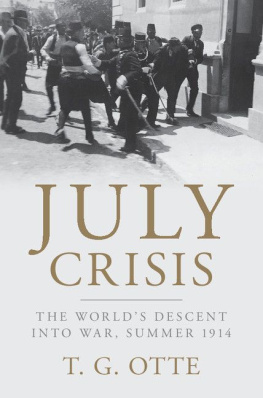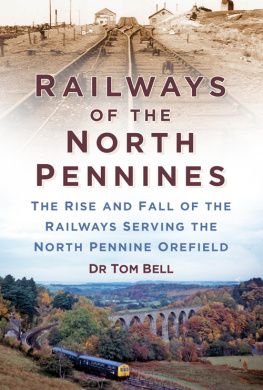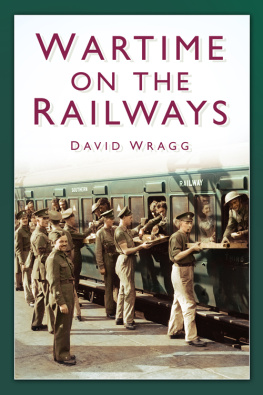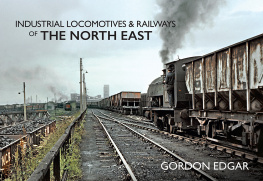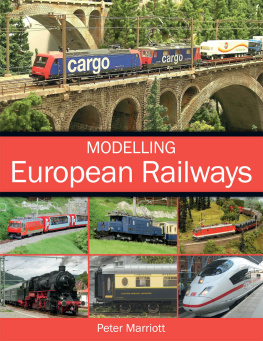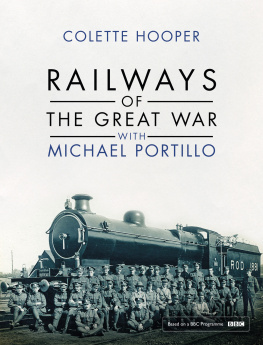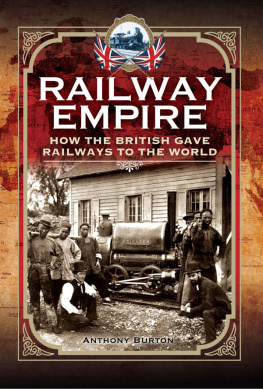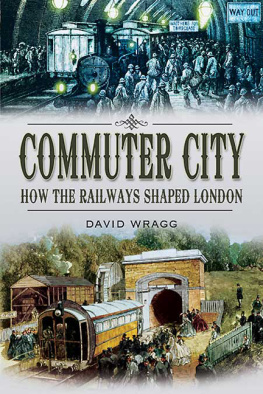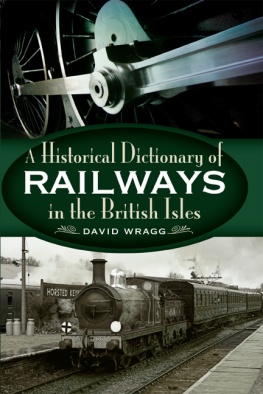Railways and International Politics
This new volume of essays by expert scholars shows how the construction and expansion of the railways represents a key factor in understanding international politics from 1848 to the end of the Second World War.
While the effect of railways on economic development is self-evident, little attention has been paid to their impact on international relations. This is unfortunate, for in the period from 1848 to 1945 railways were an important element in the struggle between the Great Powers. These essays provide in-depth analyses of railways as objects of political and economic Great Power rivalries and as tools of power projection, strategic mobilization and imperial defence. The book demonstrates the strategic significance of railways and reaches conclusions that can be applied to other technological innovations.
This book will be of great interest to students of international history, military history and strategic studies.
T.G. Otte is Lecturer in Diplomatic History at the University of East Anglia. He is the author (with G.R. Berridge and Maurice Keens-Soper) of Classics of Diplomatic Theory and the editor of Military Intervention: From Gunboat Diplomacy to Humanitarian Intervention, and Personalities, War and Diplomacy.
Keith Neilson is Professor of History at the Royal Military College of Canada, where he teaches military and diplomatic history. He is the author of Strategy and Supply: The Anglo-Russian Alliance 19141917 and, most recently, of Britain, Soviet Russia and the Collapse of the Versailles Settlement, 1919-1939, and has edited several collections.
Routledge Series: Military History and Policy
Series Editors: John Gooch and Brian Holden Reid
ISSN: 1465-8488
This series will publish studies on historical and contemporary aspects of land power, spanning the period from the eighteenth century to the present day, and will include national, international and comparative studies. From time to time, the series will publish edited collections of essays and classics.
1. Allenby and British Strategy in the Middle East, 19171919
Matthew Hughes
2. Alfred von Schlieffens Military Writings
Robert Foley (ed. and trans.)
3. The British Defence of Egypt, 19351940: Conflict and Crisis in the Eastern Mediterranean
Steven Morewood
4. The Japanese and the British Commonwealth Armies at War, 19411945
Tim Moreman
5. Training, Tactics and Leadership in the Confederate Army of Tennessee: Seeds of Failure
Andrew Haughton
6. Military Training in the British Army 19401944: From Dunkirk to D-Day
Tim Harrison Place
7. The Boer War: Direction, Experience and Image
John Gooch (ed.)
8. Caporetto 1917: Victory or Defeat?
Mario Morselli
9. Postwar Counterinsurgency and the SAS 19451952: A Special Type of Warfare
Tim Jones
10. The British General Staff: Reform and Innovation 18901939
David French and Brian Holden Reid (eds)
11. Writing the Great War: Sir James Edmonds and the Official Histories, 19151948
Andrew Green
12. Command and Control in Military Crisis: Devious Decisions
Harald Hoiback
13. Lloyd George and the Generals
David Woodward
14. Malta and British Strategic Policy, 19251943
Douglas Austin
15. British Armour in the Normandy Campaign 1944
John Buckley
16. Gallipoli: Making History
Jenny Macleod (ed.)
17. British and Japanese Military Leadership in the Far Eastern War 19411945
Brian Bond and Kyoichi Tachikawa (eds)
18. The Baghdad Pact: Anglo-American Defence Policies in the Middle East, 195059
Behcet Kemal Yesilbursa
19. Fanaticism and Conflict in the Modern Age
Matthew Hughes and Gaynor Johnson (eds)
20. The Evolution of Operational Art, 17401813: From Frederick the Great to Napoleon
Claus Telp
21. British Generalship on the Western Front 191418: Defeat into Victory
Simon Robbins
22. The British Working Class and Enthusiasm for War 19141916
David Silbey
23. Big Wars and Small Wars: The British Army and the Lessons of War in the 20th Century
Hew Strachan (ed.)
23. The Normandy Campaign 1944: Sixty Years On
John Buckley (ed.)
24. Railways and International Politics: Paths of Empire, 18481945
T.G. Otte and Keith Neilson (eds)
First published 2006
by Routledge
2 Park Square, Milton Park, Abingdon, Oxon, OX14 4RN
Simultaneously published in the USA and Canada
by Routledge
270 Madison Ave, New York NY 10016
Routledge is an imprint of the Taylor & Francis Group,
an informa business
Transferred to Digital Printing 2008
2006 T.G. Otte and Keith Neilson, selection and editorial matter; the contributors, their own chapters
Typeset in Times New Roman by
Newgen Imaging Systems (P) Ltd, Chennai, India
All rights reserved. No part of this book may be reprinted or reproduced or utilised in any form or by any electronic, mechanical, or other means, now known or hereafter invented, including photocopying and recording, or in any information storage or retrieval system, without permission in writing from the publishers.
British Library Cataloguing in Publication Data
A catalogue record for this book is available from the British Library
Library of Congress Cataloging in Publication Data
A catalog record for this book has been requested
ISBN10: 0415349761 (hbk)
ISBN10: 0203350235 (ebk)
ISBN13: 9780415349765 (hbk)
ISBN13: 9780203350232 (ebk)
Publishers Note
The publisher has gone to great lengths to ensure the quality of this reprint but points out that some imperfections in the original may be apparent
Contributors
Nigel Brailey recently retired as Lecturer in History at the University of Bristol. having specialized in modern Asian history and Western imperialism in Asia. Among his publications are Thailand and the Fall of Singapore (1985) and The Satow Siam Papers (ed., 1997).
F.R. Bridge is Professor Emeritus in International History at the University of Leeds, specializing in Austro-Hungarian foreign policy. His publications include Great Britain and AustriaHungary, 19061914 (1972), From Sadowa to Sarajevo (1972), The Habsburg Monarchy among the Great Powers (1991) and (with Roger Bullen) The Great Powers and the European States System, 18141914 (2nd edn, 2005).
John Fisher is Lecturer at the University of the West of England, Bristol, specializing in British foreign and imperial policy in Central Asia. His publications include Curzon and British Imperialism in the Middle East, 19161919 (1999), Gentlemen Spies (2002) and Paris Peace Conference Peace without Victory (ed., 2001), and he has published widely in academic journals.


